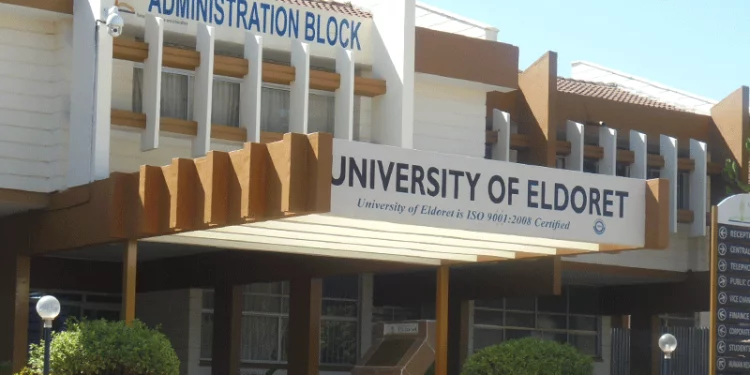The University of Eldoret is facing intense criticism following an audit report revealing significant financial discrepancies linked to the construction of a Business Studies and Economics Complex.
The construction, which was initially awarded on June 6, 2019, for a period of 72 weeks, was later revised to span 162 weeks. However, as of June 30, 2021, the project remained incomplete, despite the extension. The delay has led lawmakers to question how taxpayer money is being handled. The audit revealed that KES 397.5 million had already been spent on the incomplete project.
The audit also highlighted issues surrounding the proposed construction of an amphitheatre, which was awarded to a local contractor on June 10, 2019, for KES 373 million. This project was set to be completed within 78 weeks. However, a physical inspection conducted in February 2022 found that only 31% of the work had been completed, far behind schedule. The project, originally slated for completion by April 21, 2022, remains unfinished.
During a parliamentary committee session, lawmakers expressed alarm over the lack of transparency in the management of these projects. According to the audit, the university’s management failed to provide critical documents needed for financial verification, prompting Committee Chairperson Hon. Jack Wamboka to demand a thorough reconciliation of the financial records.
“The failure to submit these crucial documents for audit is deeply concerning. We expect the university’s management to account for every shilling spent on these projects,” Hon. Wamboka said, directing witnesses to appear before the committee next week with proper documentation.
The lawmakers called for stricter oversight to ensure that such financial irregularities do not recur.
Elsewhere, the committee raised similar concerns about the Rift Valley Institute, where the Board of Trustees of the Rift Valley Institute Development Trust was criticised for allocating only 200 acres of its vast land holdings to the institute. The committee found this allocation insufficient for the institution’s operations, which also include a primary school.
Furthermore, the Rift Valley Institute was found to have errors in its financial statements. Even after amending the statements, they remained unsupported by journal entries and schedules, raising questions about the accuracy of its financial reporting. “There is a clear lack of compliance with basic financial management practices,” Hon. Wamboka noted, pointing to the institution’s disregard for proper financial procedures.
In a separate case, the Baringo Training Institute was questioned over a stalled tuition block project, awarded in 2017, but for which the full contract sum of KES 24.9 million and retention fees had already been paid. Although the certificate of completion was eventually issued, lawmakers were concerned about the delay and the project’s prolonged stall.
The lawmakers’ concerns about financial mismanagement in educational institutions have prompted calls for increased vigilance. Members of Parliament have urged all heads of educational institutions to ensure compliance with the audit cycle, warning that failure to do so would result in further scrutiny.
“We cannot tolerate the misuse of public funds or delays in critical infrastructure projects, especially in our institutions of learning,” Hon. Wamboka stated.












